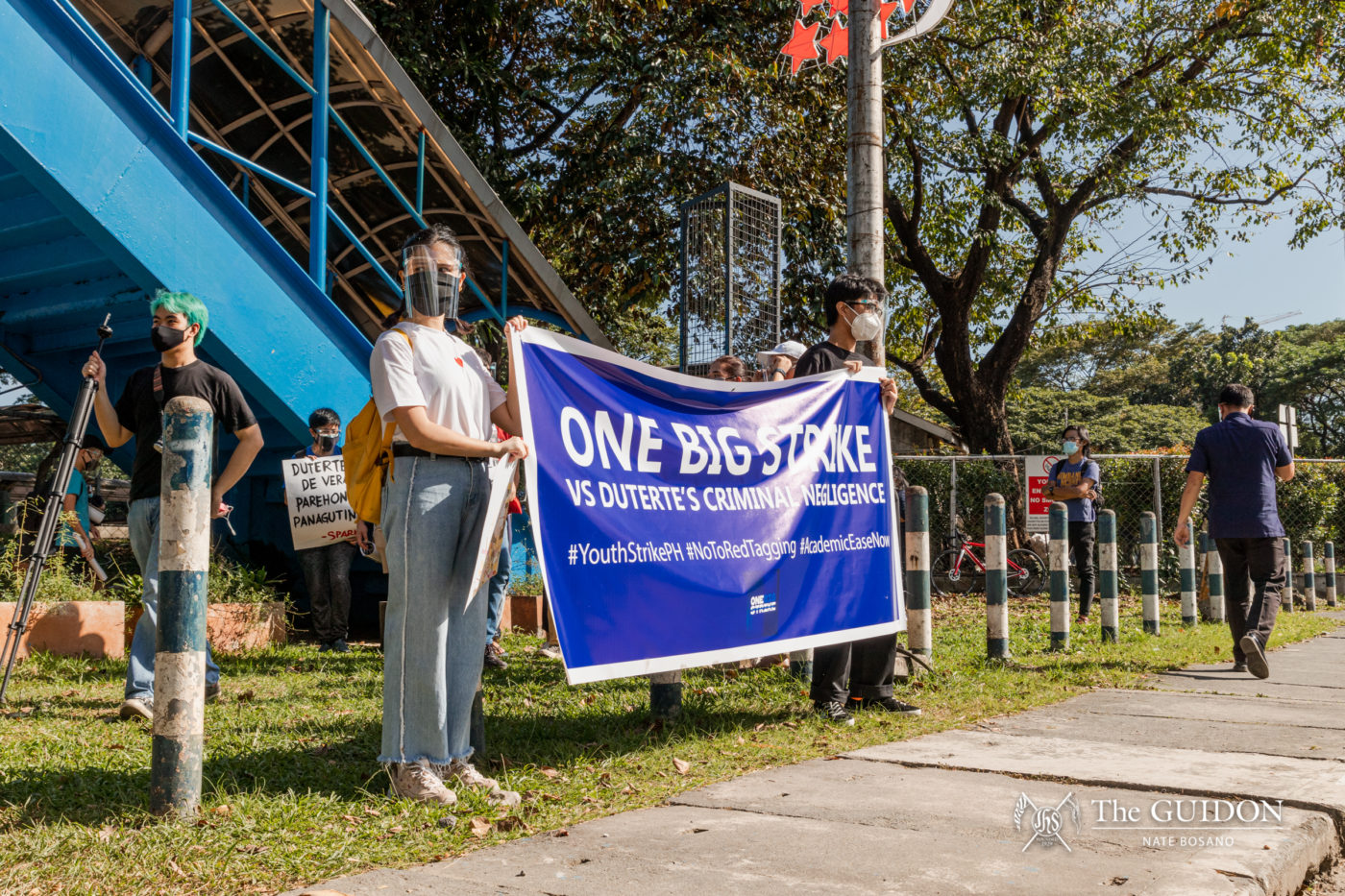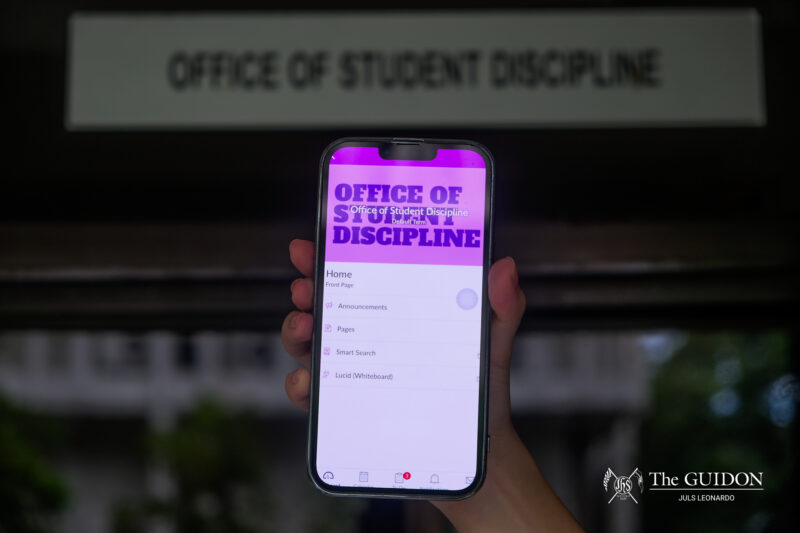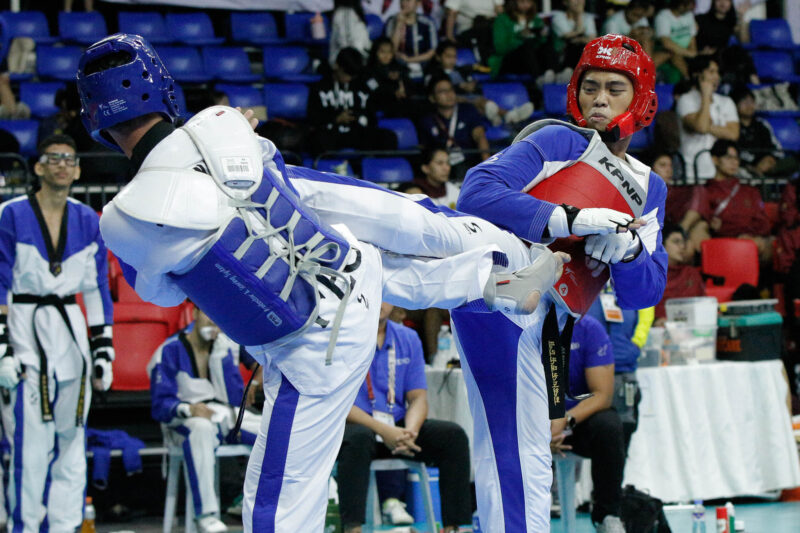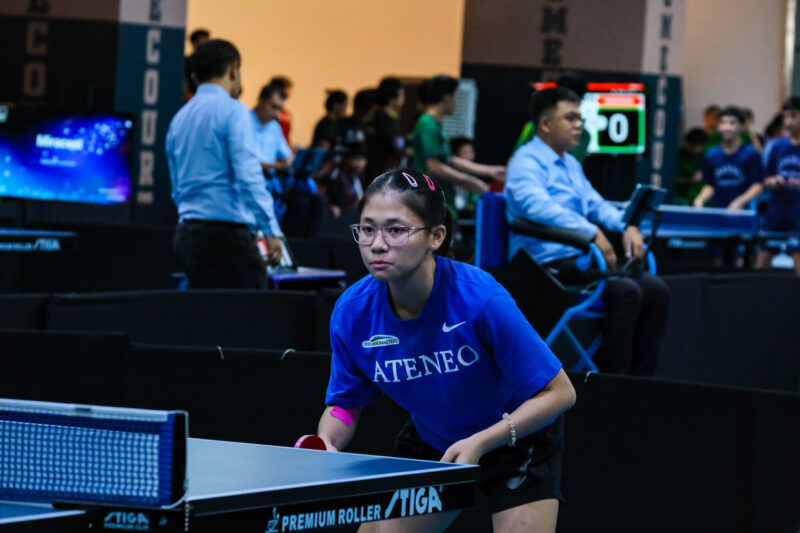MONTHS AFTER the release of the Ateneo student strike manifesto in November 2020, various Loyola Schools (LS) students continue their academic strike to protest the national government’s poor response to crises and the COVID-19 pandemic.
Organized by Elise Ofilada (3 BFA CW), Bernardine De Belen (3 BFA CW), Angela Cole (3 BFA CW), Maria Larga (3 BFA CW), and Patricia Fermin (3 BFA ID), One Big Strike (OBS) calls on the national government to take accountability for its “criminal negligence” towards recent typhoons and the pandemic.
Ofilada said that their second semester plans for the strike are underway following the success of two town hall meetings, where they discussed the first semester’s online learning difficulties with LS students and professors last January 18 and 20, respectively. As of press time, the OBS has asked the administration for a public discussion on the issue through an open letter to Vice President for the Loyola Schools Maria Luz Vilches, PhD and University President Roberto Yap, SJ.
Strikers’ experiences
Prior to the town hall meetings, 581 Ateneans co-signed the initial petition for a mass student strike. OBS then published a more nuanced petition, which the Sanggunian denied to endorse with a 7-2 vote after an LS-wide constituency check.
However, the Office of the Associate Dean for Student Formation (OADSF), OBS organizers, and representatives of alumni and the Sanggunian released a joint statement on plans for the mass student strike and its campus mobilizations. The OBS organizers said that this prompted them to create a manifesto based on research regarding national issues and feedback from the LS community.
The OBS initiators shared that the flooding in Cagayan was the “breaking point” that led to the strike. “We can’t keep pretending that things are normal, and we can’t keep on doing our modules as if things are okay because obviously they’re not,” De Belen said.
Ofilada added that joining the strike was an “extensive experience,” as strikers requested for class withdrawals in order to “immerse with people who are left behind by the systems.” De Belen also said that their professors continued to converse with them about how they can support the movement as faculty members.
However, Ofilada noted that the strikers still faced challenges in organizing the initiative and maintaining the community’s engagement, particularly because the online setup restricted student interactions and connections.
Despite this, the strikers still believed that the mass academic strike was a success because it inspired other schools to start their own strike and participate in relief operations.
“It’s already successful [when] students [decided to] join the strike. […] Nakikita natin kung paano nag-mamanifest kung ano ‘yung inaaral sa University, na we stand up for things that we believe in,” De Belen said.
(We saw how the University’s principles manifested [to the students], which is standing up for things that we believe in.)
Addressing concerns
In relation to the Sanggunian’s non-endorsement of the petition, Interim Sanggunian Vice President Kat Moreno acknowledged that their LS-wide constituency check had flaws due to inadequate time for planning and communicating with the OBS organizers amid public pressure from the student body.
She added that arriving at a consensus was difficult due to the petition’s constant changes. “Our team was under so much pressure to [decide] when we did not have all the data, […] though elections only get 10% of the student population. This constituency check got at least 20%, […] [so] this was the most involved the students have been, and we could have handled it better,” she said.
Moreno clarified that the Sanggunian’s decision did not entail a refusal to support the strike. She explained that they helped OBS by connecting them with University administrators and stakeholders, as well as organizing the logistics and security of their mobilizations.
The OBS strikers also expressed disappointment over the University’s initial statement on their protests. “This statement seemed to be badly worded in a sense that it seemed to discredit the efforts of the student body to take a stand against the government’s mishandling of the pandemic and the typhoons,” Ofilada said. Due to clamor from the LS community, the Office of the President issued a follow-up statement calling for solidarity and creative action.
Associate Dean for Student Formation Leland Dela Cruz, PhD shared that the administration only learned about the mobilization at Gate 2.5 through social media. He added that the lack of coordination between the administration and the strikers raised campus security concerns, as they did not request for an endorsement from the OADSF or the Office of Student Activities to use school property.
“[T]here are security concerns, so if it’s on Ateneo property, then Ateneo is liable for whatever happens on its property,” he said.
Second semester plans
Moreno explained that the strike pushed them to review the Central Assembly’s current processes so they can create better internal measures to protect the LS students’ freedom of speech in the Ateneo. “We also had to recheck the way that we ran things in [Central Assembly] in a sense na how can we get more people involved? Because as we can see, the student body [is] not apathetic. They’re willing to talk about the things that are relevant to them,” she said.
Meanwhile, Dela Cruz encouraged strikers to coordinate with him as the University never questioned students’ right to protest. “From the administration side, the right to protest was never in question. In fact, […] if the students want to strike, then they have every right to do so,” he shared.
School of Social Sciences (SOSS) Representative TJ Alcantara also said that members from SOSS Sangunian, Sanggunian Commission on Socio-political Development, The Ateneo Assembly, and the Council of Organizations of the Ateneo – Manila are drafting the Socio-political Safeguarding Bill.
This Bill will establish the Socio-political Harassment Helpdesk and the appointment of Sanggunian’s own legal counsel. They are currently consulting with Dela Cruz, Vice President of Social Development Rizalino Rivera, LS Legal Counsel Atty. Patty Arroyo, the Ateneo Human Rights Center, and representatives of sociopolitical organizations to ensure that the Bill follows University policies.
As for the strike itself, Ofilada said that its demands will not change, as the strikers continue to seek for the University’s statement against the government’s negligence. “We still hope that the University will, in the nearest future, take [a] direct stance against the negligence of the national government,” Ofilada stated.







